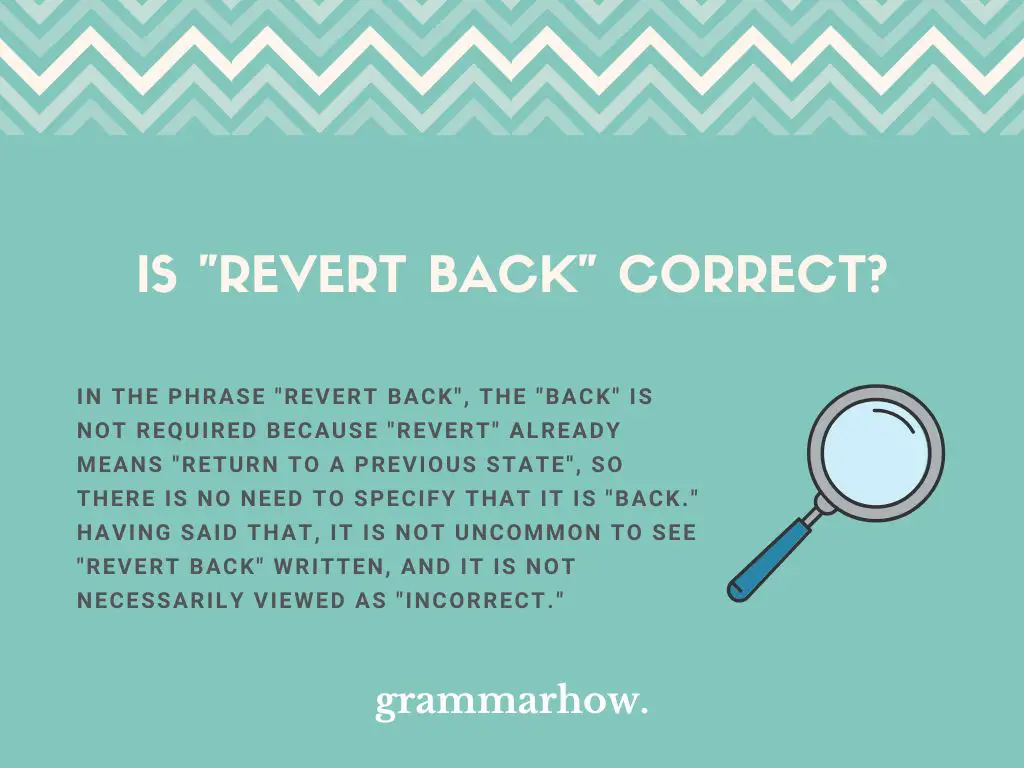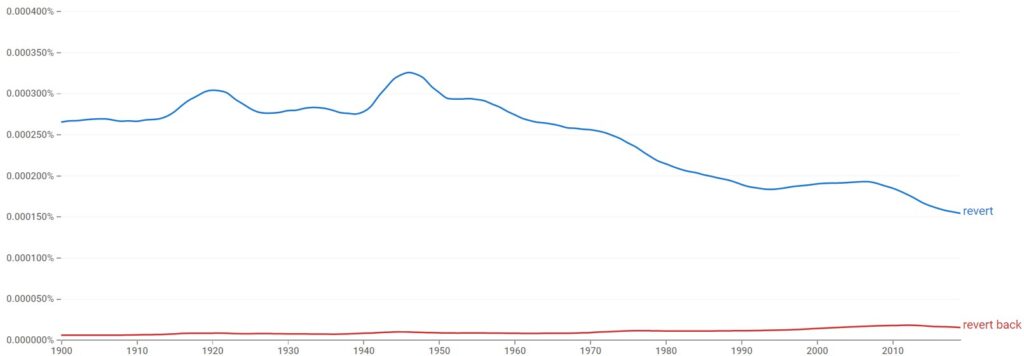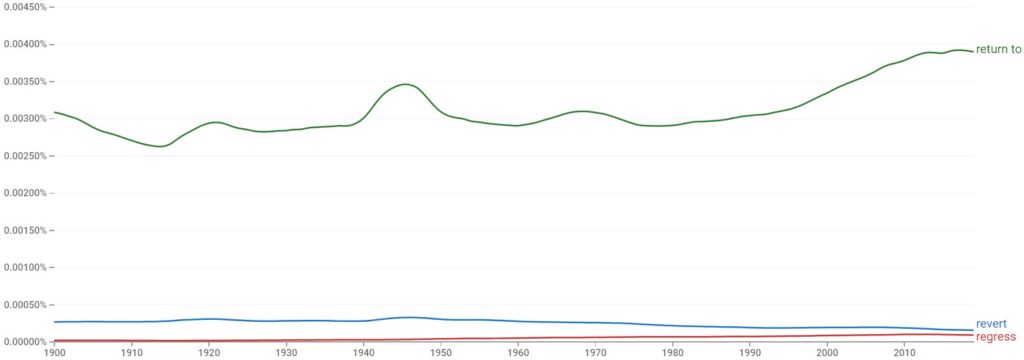Some people argue that “revert back” is incorrect because the words “revert” and “back” essentially mean the same thing. This article investigates whether it is correct to say “revert back”, looks at the term’s usage, and provides alternatives that can replace “revert back.”
Is “Revert Back” Correct?
In the phrase “revert back”, the “back” is not required because “revert” already means “return to a previous state”, so there is no need to specify that it is “back.” Having said that, it is not uncommon to see “revert back” written, and it is not necessarily viewed as “incorrect.”

According to some, the phrase “revert back” somewhat decreases the fomality and quality of a piece of writing because it is an example of tautology, which is when one word is redundant.
However, it is one of the kinds of phrases that, although it is not necessary to add the “back”, many people still do. Other terms for which this happens are “return back” or “free gift.”
Also, the fact that some dictionaries, such as Merriam-Webster, have examples containing the “revert back” shows some degree of acceptance of the phrase.
Is “We Will Revert Back to You” Correct?
The phrase “we will revert back to you” is not correct but is still used with some frequency, much to some people’s dismay. Furthermore, some people use other variations in emails, such as “please revert to me asap” or “I will revert back to you later.”
These uses of the word “revert” are incorrect, and it is better to use one of the alternatives such as “please get back to me.”
In the Collins Dictionary, the word “revert” means to return to a previous state, system, or behaviour; therefore, responding to an email does not fit this context.
What to Say Instead
Rather than saying “revert back”, choosing a phrase that does not contain a tautological error, especially when writing emails, is preferable.
Revert
The word “revert” means to return to a previous state, behaviour, person, or system. The meaning is the same as “return to.”
Here are some examples that show how to use “revert”:
- I think we should revert to last year’s marketing strategy because it worked better than the new one.
- I will revert to them once I know the results of the test.
- She should avoid her old friends so she doesn’t revert to bad habits again.
Regress
The word “regress” means returning to a previous state or condition that is usually worse or lesser developed. For example, if you were using “revert back” to discuss returning to bad behaviour, you could use “regress” instead to express the same idea.
Here are some examples of how to use “regress” in a sentence:
- After the diving accident, the doctors said his mental age could regress to that of a 4-year-old.
- The city centre has started to regress to a state of disrepair and high crime.
- Peter is beginning to regress into the habit of not doing his homework.
Return to
The word “return to” has various meanings, and one of those is the phrasal verb which, according to the Macmillan Dictionary, means the same as “revert back”, in that it means to “go back” to a person, event, state, or situation.
Here are some example sentences that show “return to” in context:
- We should return to what Paula said about tax policy earlier in the meeting.
- After Christmas had finished, everyone went home and returned to their everyday lives again.
- He returned to playing football because he didn’t like going to the gym.
How Prevalent Is the Usage of “Revert Back”?
The Google Ngram Viewer shows that “revert” is quite commonly used and that “revert back” is used far less, although it is found in moderate frequency.

The Google Ngram Viewer with “regress”, “revert”, and “return to” show that “regress” is found with similar frequency to “revert”, while “return to” is predictably used far more commonly than the others because of the multiple definitions of “return.”

Final Thoughts
The phrase “regress back” is often heard and read in English and technically speaking, it is not “incorrect” considering that dictionaries contain examples containing the structure. However, upholders of English grammar rules would argue that “back” is redundant because it means the same as “revert.”

Martin holds a Master’s degree in Finance and International Business. He has six years of experience in professional communication with clients, executives, and colleagues. Furthermore, he has teaching experience from Aarhus University. Martin has been featured as an expert in communication and teaching on Forbes and Shopify. Read more about Martin here.

